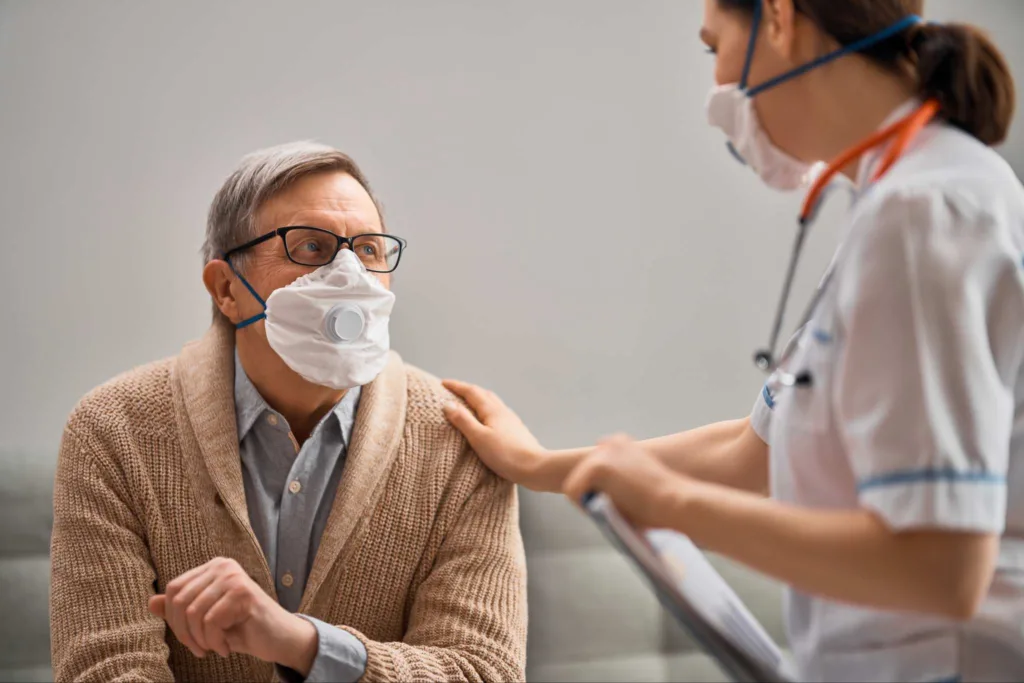Car accidents can be a traumatic experience for the body, often leading to various injuries that might not be immediately visible. One unexpected response that some people experience after a car accident is the onset of a fever. While this might seem unrelated, a fever can be a natural response to the physical trauma your body has endured. The body’s immune system plays a crucial role in this response, working to fight off potential infections or inflammation caused by the accident.
Inflammation and Fever: How Your Body Reacts to Injury
When your body experiences an injury, whether from a minor fender-bender or a more severe collision, it reacts by initiating an inflammatory response. This is your body’s natural way of protecting itself and beginning the healing process. Inflammation is a critical part of this process, as it helps to isolate the damaged area, preventing the spread of potential infections. The immune system releases various chemicals and white blood cells to the site of injury, causing redness, swelling, and heat—hallmarks of inflammation.
However, this protective response can also lead to a rise in body temperature, resulting in a fever. Fevers are a common response to inflammation, as the body attempts to create an environment less conducive to the survival of bacteria and viruses. Even in cases where the injury appears minor, the internal damage can be significant enough to trigger this response. For example, internal bruising, soft tissue damage, or even minor fractures can all lead to an inflammatory reaction that raises your body’s temperature.
Common Causes of Fever After a Car Accident
Understanding why you might develop a fever after a car accident can help assess the severity of your condition.
- Infections: Fever can result from infections caused by open wounds or internal injuries. Bacteria can enter through cuts, scrapes, or more severe injuries, leading to infections that cause a fever. Even without visible signs, internal injuries like a ruptured organ could lead to a systemic infection.
- Inflammation: Inflammation from injuries like muscle strains, sprains, or whiplash can raise body temperature. The body’s repair efforts often cause a fever as it responds to what it perceives as threats.
- Stress-Induced Fevers: The mental and emotional stress after an accident can trigger a psychogenic fever, where the body’s core temperature rises in response to extreme stress, even without infection or injury.
- Blood Clots: Though less common, blood clots can form after an injury, potentially leading to pulmonary embolism, a condition that causes sudden fever and requires immediate medical attention.
When Should You Be Concerned About a Fever After a Car Accident?
While a fever after a car accident can be a normal response to injury, it is essential to monitor your symptoms closely. Not all fevers are benign, and some can indicate a more severe underlying condition that requires prompt medical attention.
You should be concerned if your fever is accompanied by any of the following symptoms:
- Severe Pain: Persistent or worsening pain, especially at the site of injury, could indicate an infection or complications like internal bleeding.
- Swelling and Redness: Significant swelling or redness around the injury site, especially if it is warm to the touch, could be a sign of infection.
- Difficulty Breathing: If you experience shortness of breath, chest pain, or difficulty breathing, it could indicate a serious condition like a pulmonary embolism or heart problems.
- Persistent High Fever: If your fever remains high (over 101°F) for more than a day or is accompanied by chills, it could be a sign of a more serious infection or condition that requires medical intervention.
How to Manage a Fever After a Car Accident
If you develop a fever after a car accident, keep a close eye on your symptoms and take steps to manage your condition:
- Rest: Rest is crucial for recovery. Your body needs time to heal, and rest helps your immune system function more effectively.
- Stay Hydrated: Drinking plenty of fluids is vital when you have a fever. Water, herbal teas, and clear broths are excellent choices to keep you hydrated.
- Use Over-the-counter Medications: Over-the-counter medications like acetaminophen (Tylenol) or ibuprofen (Advil) can help reduce fever and alleviate discomfort.
- Monitor Your Symptoms: Track your temperature and be aware of any additional symptoms. If your fever remains high or if you develop other concerning symptoms, seek medical attention promptly.
- Consult with Healthcare Providers: While home remedies can help manage a fever, it’s crucial to consult with healthcare providers if your fever persists or is accompanied by other symptoms.
How Chiropractic Care Can Help Manage Post-Accident Symptoms

Chiropractic care plays a vital role in managing post-accident symptoms, including the inflammation and stress that may contribute to a fever. Treatments such as spinal adjustments and active rehabilitation are designed to alleviate pressure on the nervous system, reduce inflammation, and restore proper alignment to the spine. This approach helps manage pain and supports the body’s natural healing processes, addressing the root causes of symptoms like fever.
Integrating chiropractic care into your recovery plan promotes overall healing and reduces the likelihood of complications arising from untreated injuries.
Recover Fully with Affordable Chiropractic Killeen
Take a fever after a car accident seriously. It could indicate a deeper issue that needs attention. Ignoring these symptoms might put your recovery at risk, but you don’t have to face this alone. At Affordable Chiropractic Killeen, we’re dedicated to providing compassionate, holistic care that helps your body heal the way it should. Whether through chiropractic therapy, spinal decompression, active rehab, or on-site X-rays, we tailor our services to fit your unique needs and support your full recovery.
If you’re feeling unwell or noticing symptoms like a fever after your accident, please don’t hesitate to reach out. Contact us today to schedule an appointment or learn more about how we can support you on your path to healing.

